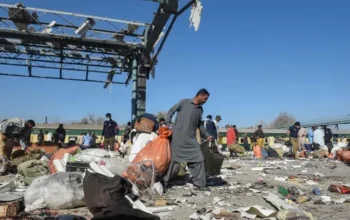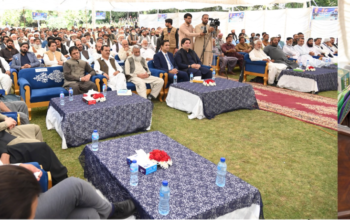ISLAMABAD: According to the latest World Justice Project (WJP) Rule of Law Index, Pakistan has been ranked as the third-worst country for law and order among 142 nations. This annual survey evaluates countries based on eight critical factors: Constraints on Government Powers, Absence of Corruption, Open Government, Fundamental Rights, Order and Security, Regulatory Enforcement, Civil Justice, and Criminal Justice.
Pakistan’s Ranking in Law and Order
In the 2024 edition of the report, Pakistan received a concerning rank of 140th for Order and Security, which assesses crime control, protection from armed conflicts, and the use of violence in civil disputes. Only Mali and Nigeria ranked lower than Pakistan in terms of law and order and security.
Overall, Pakistan’s position in the Rule of Law Index was 129th out of 142 countries. The country also faced low rankings in several other categories:
- Constraints on Government Powers: 103rd
- Corruption: 120th
- Open Government: 106th
- Fundamental Rights: 125th
- Regulatory Enforcement: 127th
- Civil Justice: 128th
- Criminal Justice: 98th
Among six South Asian nations, Pakistan and Afghanistan occupy the lowest positions in the index.
Global Trends in Rule of Law
The 2024 report indicates a global decline in the rule of law for the seventh consecutive year, with many countries experiencing a drop in their overall rankings due to issues like executive overreach, human rights violations, and ineffective justice systems.
Countries such as Denmark, Norway, Finland, Sweden, and Germany topped the rankings among high-income nations.
Erosion of Rule of Law
The report highlights that the rule of law weakened in 57% of surveyed countries this year. However, it also notes a “slowing” trend in this decline, suggesting that “progress is possible” as fewer nations are eroding in the rule of law compared to previous years.
For the first time in five years, 59% of countries showed improvements in the Absence of Corruption factor, and many have made strides in enhancing their criminal justice systems. Despite these advancements, issues related to civil justice continue to persist, especially in delivering timely and independent justice.
Continued Challenges
Between 2016 and 2024, 81% of countries have reported a loss in protections for fundamental rights, while 77% experienced a decrease in governmental checks and balances, including oversight from legislatures, courts, civil society, and the media.
William H. Neukom, co-founder and president of the WJP, emphasized the importance of recognizing both the challenges and accomplishments. “After seven consecutive years of rule of law declines, it can be easy to focus on the negative,” he stated. “However, we must also acknowledge the hard work being done to improve justice systems globally.”
Conclusion
The World Justice Project’s findings underscore the urgent need for reforms in Pakistan’s law and order landscape. As the global community grapples with declining rule of law, it is crucial to focus on improving governance, enhancing accountability, and protecting fundamental rights to foster a more just society.




